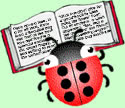Barcoding Life, response from the innovators
I recently posted in the Beneblog on Barcoding Life, based on a dinner with Dan Janzen and Winnie Hallwachs. I just received a response from these two dynamic scientists, and felt it was well worth sharing! If there ever was a circumstance where a "single" technology - a dirt cheap back pocket reusable DNA barcorder - will transform people-disease-people relationships and equally transform people-biodiversity relationships, this is it. Yes, it needs the gadget and it needs the global DNA sequence snippet library for all species. The former seems really to be emerging, wanting only a $10 m nudge. But I see the latter, quite literally tens of millions of identified and vouchered DNA barcodes, as the huge task ahead of us (and as of this year, a bit behind us as well). This is a task where speed counts both before wild biodiversity is gone, and to incentivate keeping it in the game. The peculiarity of this task is that there is already a global army of biologists and tax
